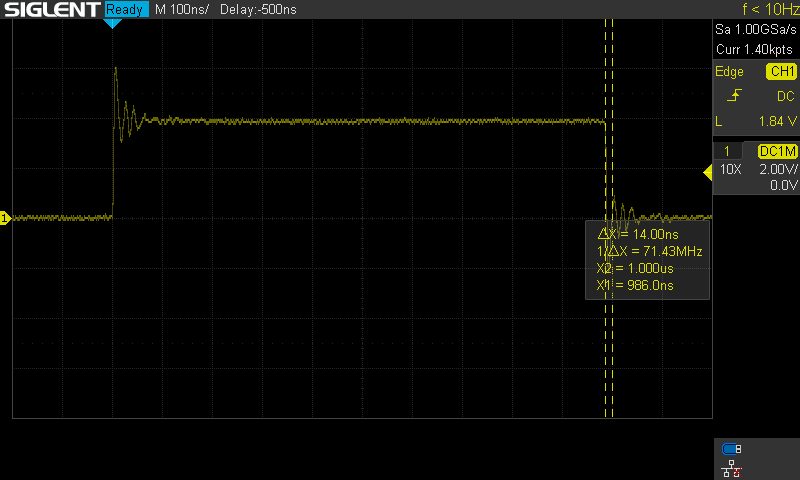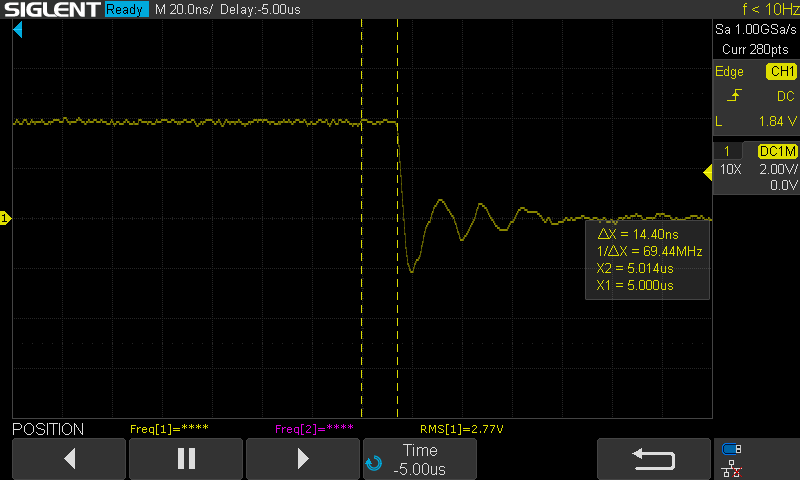Generate glitch pulses of at specific time after a trigger and for a specific duration. By pulling Vcpp (sometimes called Vcpu) low (typically using a MOSFET) at the right time for the right duration (a bit of a black art) one can cause instructions to be seemingly skipped (in practice the wrong operation is performed). This is most useful for SOCs with onboard flash where the goal to to dump said flash.
Yosys is fast, consequently one can just alter the Verilog and re-synthesize. This is the incept in a series of glitch generators:
This version requires re-synthesis every time you want to changing timing parameters. It is a one-shot; that is, it generates one glitch pulse a specified time after trigger.
My goal is to get this to the point where one can set values via UART and skip
the re-synthesis. The goal here is to send a series of delays, and gwidths;
thus, after trigger it waits out the first delay, delay1, and then
sends a glitch pulse of duration gwidth1, then it waits out the
(optional) second delay, delay2 and then sends a glitch pulse of
duiration gwidth2 and so on.
delay1 gwidth1 delay2 gwidth2 ...
delayn gwidthn
eg:1000000000 65 1000000 60 10000 60 means wait 1_s, generate a 65_ns
glitch pulse, wait 100_μs, generate a glitch pulse of 60_ns and finally
wait 10_μs, generate a glitch pulse of 60_ns. Currently the resolution
is about 5_ns. (204_MHz clock I'm still borking with the PLL)
Some day I hope the obviate the need for an external UART (integrate the USB/UART into the FPGA); for now let's see if I can work out a UI.
Connect your UART dongle to the FPGA. Use the following to access the (albeit
text based) UI.
$screen /dev/ttyUSBn 115200
TRIG: starts the timer, when the timer elapses a pulse of the specified
duration is generated.
TX: UART transmit
RX: UART receive
GLITCH: pulse out
GLITCHn: inverted pulse out
Things like chipwhisperer use these, and refer to them as a crowbar.
I want the timers (glitch one-shot and the delay) to be precise (that's why I'm using an FPGA); therefore, I'm using the FPGA's PLL. Unfortunately this means I have to use a primitive that ties me to a specific FPGA. I'll start with an IceStick (Lattice ICE40HX1K), then maybe an Altera (Intel) Cyclone4, and expand from there.
I'm still trying to sort out some timing issues, it's off by about 14_ns,
not really sure why. I had the PLL running at 300_MHz but that proved
unreliable. This is good enough for the MCUs I'm borking with (150_MHz or so).



 IRF7807ZTR
IRF7807ZTR
 IRLML2502
IRLML2502